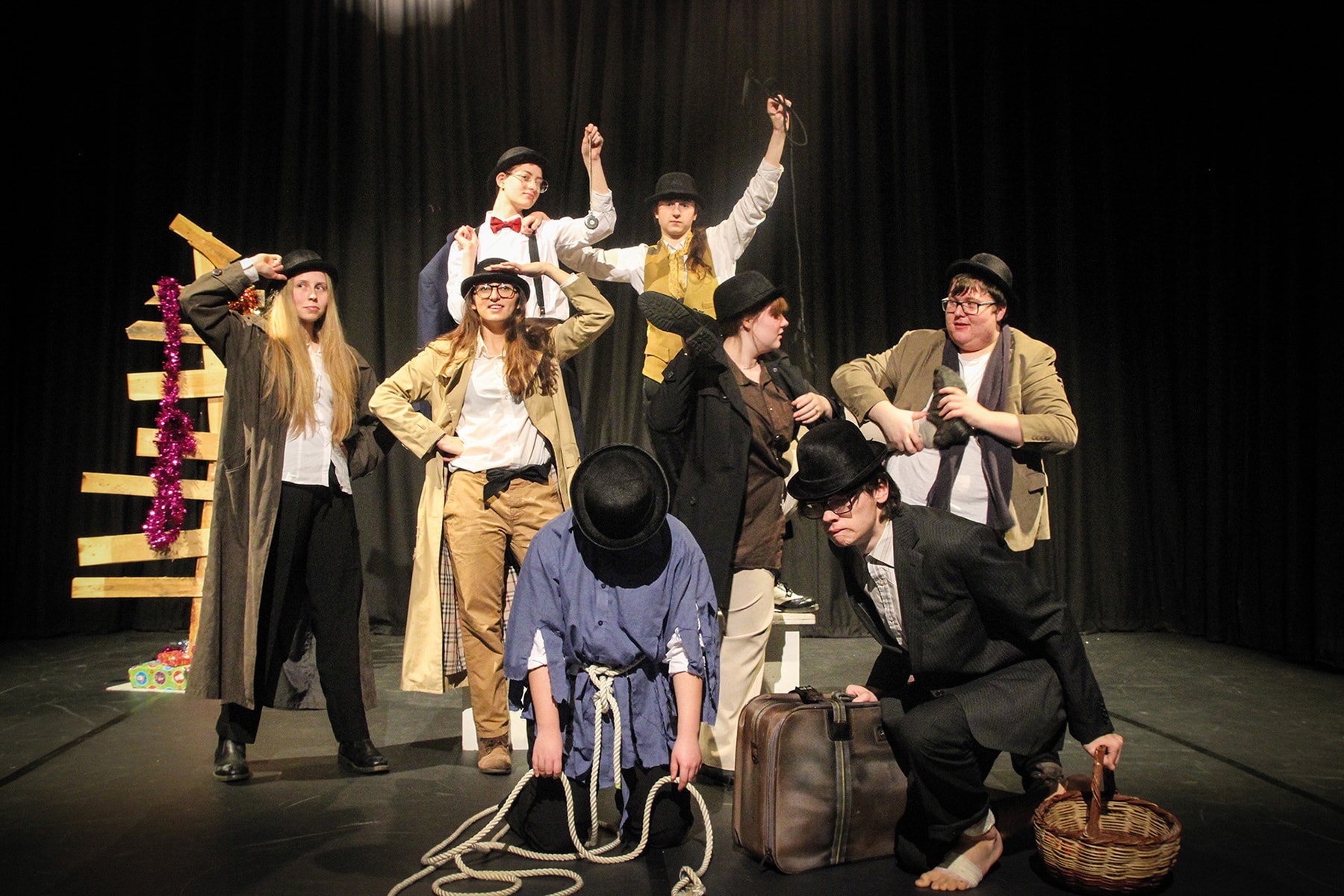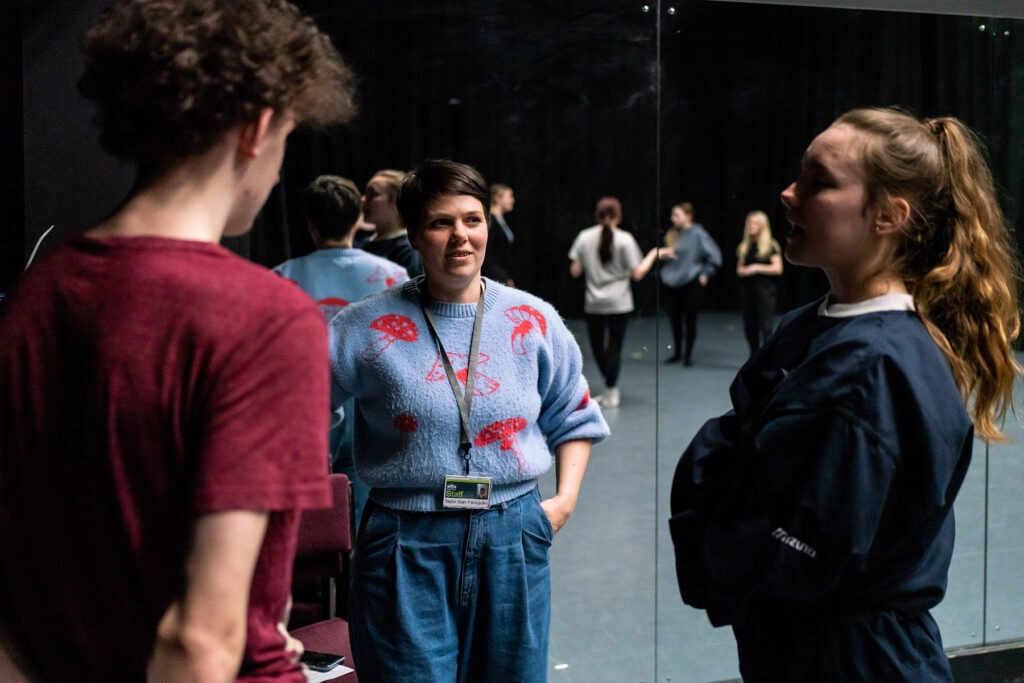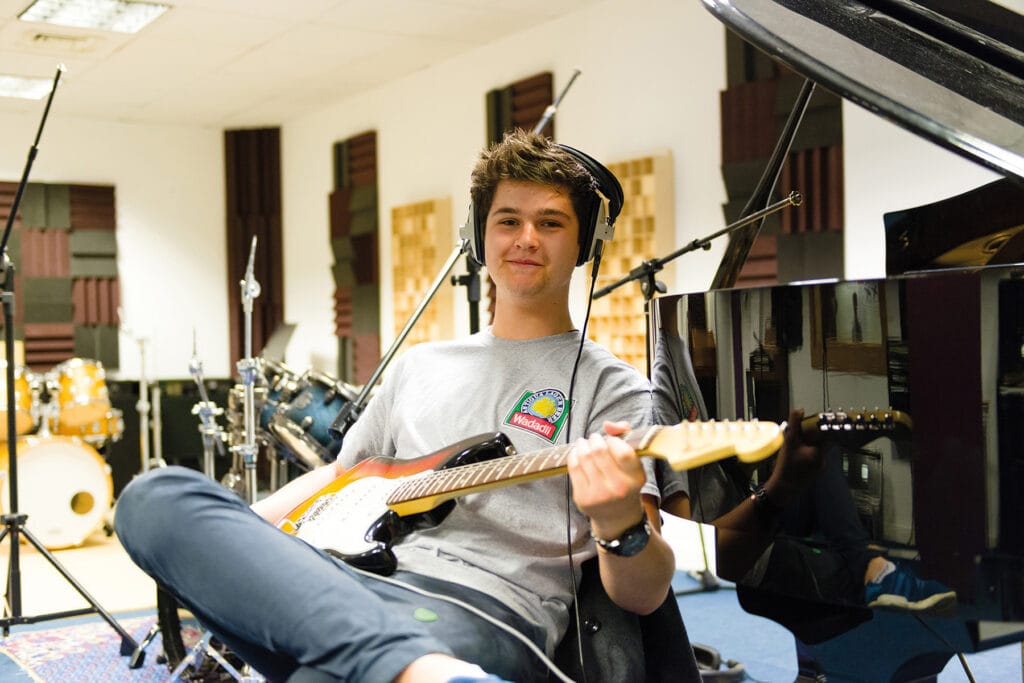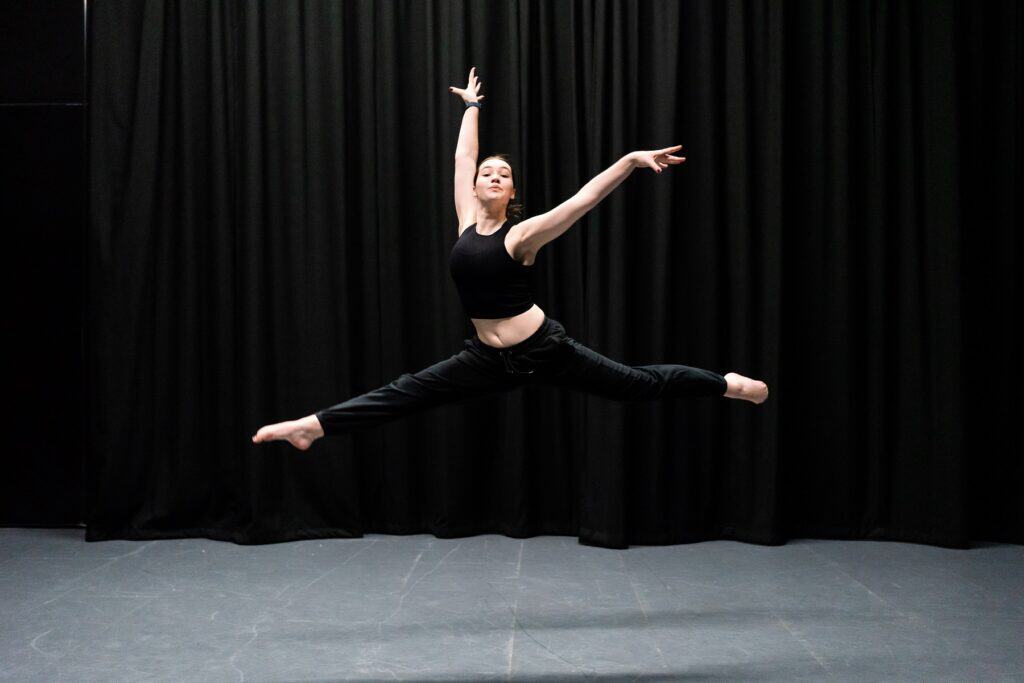New students starting in September: You can find more information about Induction days and submitting your GCSE results in our Start of Year Guide.
why choose this course?
Do you want to develop your creative potential? Work alongside others in a fun and inspiring way? By building performance, directing and design skills we encourage learners to articulate their personal and artistic viewpoints and make exciting, challenging theatre performances. Drama is a collaborative course and will help you to develop important communication skills and confidence, contributing to your personal and social development. Through studying drama, we recognise the important role it plays in helping us to understand social issues, human interaction, and the wider world. You will be inspired by live theatre, experimentation and professional practice and seek to apply these reflections to support your practical and written responses to the plays that we study.
Apply for this course
Start date: 08/09/2025
TOP COURSE HIGHLIGHTS
exceptional facilities
excellent tutor support
theatre visits and workshops
creative collaboration
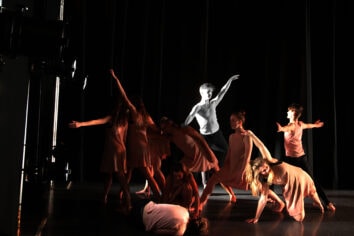
Dedicated performance spaces
We have an excellent learning environment; our classes take place in a theatre space or a drama rehearsal room. This dedicated space develops your understanding of professional working theatre.
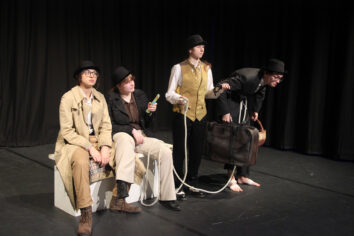
experiment with styles
The opportunity to learn about a subject in a practical and collaborative way. In A Level Drama and Theatre, we are active and explore theory practically, ‘on our feet’, experimenting with styles and theory to develop your performance and production skills.
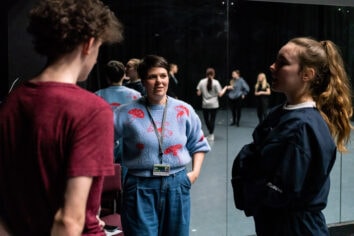
access performances
To develop your understanding of professional practice, we go on theatre visits and invite productions and practitioners into college to lead workshops. We also have access to Digital Theatre and National Theatre filmed performances that you can watch from home.
what will i learn?
If you love drama and theatre and want an outlet for your creativity, this course will provide you with the opportunity to grow as a theatre practitioner. You will study a range of key theatrical practitioners and apply their theories to your own practical work whilst honing your performance skills. You will be encouraged by working to professional standards of collaboration, analysing, and evaluating performances, published texts and your own practice. On this course you will be able to try new areas of drama and theatre such as technical theatre, directing, scriptwriting and choreography.
We approach the study of drama and theatre from three key viewpoints:
Actor – By developing your appreciation of style and performance techniques you will hone your acting skills through practical workshops – exploring and building character interpretations, vocal skills, physicality, and stage relationships with others.
Director – You will improve your interpretative skills when working with plays. You will use inspiration from live theatre, analysis, and research to build ideas for performance and form your directorial vision when working on original material or set texts.
Designer –This enables you to expand conceptual thinking and visualisation skills, learning how each technical area supports performance and frames the audience experience. Your ideas for set creation, costume, lighting, and sound design will communicate your interpretation of the play to an audience.
We will begin the course with a range of practical workshops designed to build group dynamics and introduce you to new styles and skills.
Component 1: Theatre Workshop = 1 Assessed Performance + Written Coursework 20%
First year – The aim is to study the techniques of one theatre practitioner/company then apply your knowledge practically in a group performance. You can work as an actor or in a technical role. You will produce a written and visual account explaining your process and research.
Component 2: Text in Action = 2 Assessed Performances + Written Coursework 40% Second year – Working in a small group creating two performances as actor or in a technical role. One performance from a text and the other an original devised performance. This component will be accompanied by an evaluation of your skills development and research.
Component 3: Text in Performance = Classroom Exploration + Written Exam 40%
You will study three plays contrasting in style, context, acting and production challenges. This component is assessed through a written exam at the end of two years and involves understanding from actor, director, and designer perspective.
Where will it take me?
By building transferable skills our students have the option of university to study any degree subject. Popular routes include Drama, English, Media, Education and Humanities or a vocational route such as Drama School to study acting, musical theatre or production. You can progress onto many careers that require creativity, leadership, confidence, and teamwork.
Career examples include a career in acting, directing or technical theatre. This course also develops relevant skills for Film and Media, Teaching, Law, Youth and Social Work.
Assessment Arrangements
Drama is a subject that requires commitment and dedication; you will work individually, in pairs, small groups and as a whole group on assessment tasks and classwork. Your achievement in this subject is dependent upon excellent attendance, punctuality, and effort. You will learn in a friendly atmosphere, using a variety of assessment methods:
You will participate in practical sessions developing your performance skills: rehearsing scenes, exploring themes, styles, and characters.
You will be assessed regularly on written work that is conducted either as homework or under timed conditions in class and given feedback on your progress.
You will be encouraged to try a broad range of performance styles and techniques; experimenting will help you to understand what styles of theatre inspire you most.
Discussions and presentations are essential to share ideas, views and develop constructive analytical skills, you will be expected to contribute to these during your lessons.
Independent work is encouraged to build your subject knowledge in drama and theatre. Learners are encouraged to read plays, watch live theatre, and keep a Director’s Notebook with analysis, evaluation, and visual responses to the set texts.
You will be formally examined on each component that you study either by your teacher, a visiting examiner or in a written exam at the end of the second year. You will also review your own performance in 1:1 discussions with your tutor.
Entry Requirements
Five GCSEs at Grade 5 to include Grade 5 in Drama or Grade 5 in an English or Humanities subject if you haven’t taken drama at GCSE. An interest in all aspects of drama – performance, directing, studying plays and design is essential.
Information & Support
Independent practice will be supported through PowerPoints, worksheets and other guides available on our Moodle course. We also use Digital Theatre and National Theatre online to provide free access to performances and professional practice. College trips to see theatre productions will be offered.
Meet the staff, tour the campus and find out about life as a student at one of the best colleges in the country.
